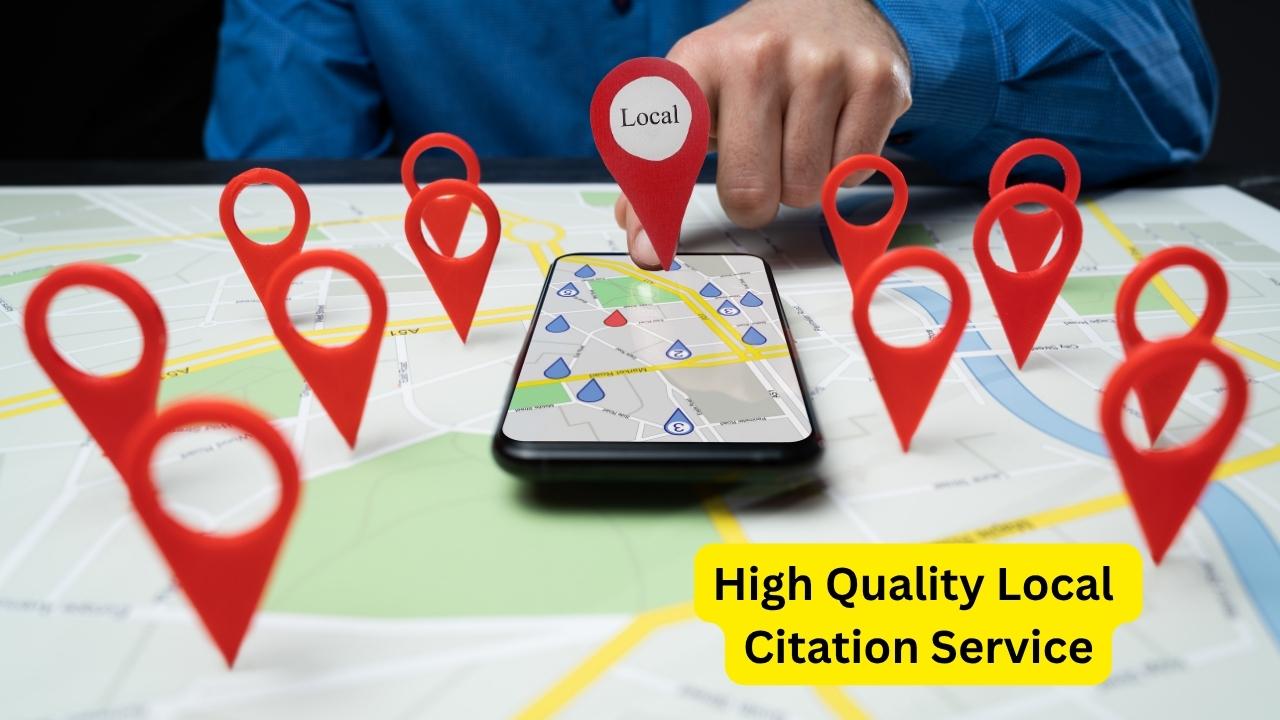If you’ve ever wondered why your shop, restaurant, or local service sometimes shows up in Google Maps or local search while others don’t, the answer often has to do with local citations. In the world of local SEO, local citations form one of the fundamental building blocks for helping your business get discovered.
Local citation services are specialized agencies or platforms that help you create, manage, audit, and optimize citations (business listings) across directories, review sites, maps, aggregators, and other local platforms. These services ensure your business name, address, phone number (often abbreviated “NAP”), and other key info are correct, consistent, and widely broadcast across the Web.
In this article, we’ll explore:
- What local citations are (and the types)
- Why they matter (benefits & SEO impact)
- Common problems or risks
- What local citation services do
- How to choose a good local citation service
- DIY vs managed citation strategy
- Best practices & tips
- Real-world examples
What Are Local Citations?
A local citation is an online mention of your business by name, address, phone number (NAP), and sometimes additional attributes (website URL, business hours, description, categories). These mentions appear on directory sites, review sites, local business directories, maps, apps, blogs, and other sites.
Citations are broadly of two types:
- Structured citations
These are standard directory or listing entries, where your business appears in a formal listing format (fields for name, address, phone, etc.). Think Yellow Pages, Yelp, Foursquare, local business directories. - Unstructured citations
These are mentions of your business in articles, blog posts, news stories, press releases, or general pages, where your business name, address and/or phone number is mentioned but not necessarily in a directory format.
A good citation will have:
- The correct and consistent Name, Address, Phone (NAP)
- Optionally, Website URL, business categories, photos, hours, etc.
- Being on relevant and trustworthy platforms
Why Local Citations Matter: Benefits & SEO Impact
Local citations are more than just digital name drops. When properly done, they deliver multiple critical advantages:
1. Help Search Engines Validate Your Business
Having consistent citations on multiple authoritative sites signals to search engines that your business is legitimate, stable, and located where you claim. This validation is essential in local search ranking algorithms.
2. Improve Visibility in Local Search & Maps
Citations are one of the ranking factors for local “map pack” or “local package” results. BrightLocal notes that citations are among the top ranking factors for local pack visibility. BrightLocal When your business data is replicated across multiple trustworthy platforms, you increase your chances of being surfaced for “near me” or location-based searches.
3. Consistency Builds Trust
Consumers expect to find consistent contact information. If your address or phone varies across different directories, it leads to confusion—and search engines may penalize the inconsistency. According to BrightLocal, 63% of consumers say they won’t use a business if they see incorrect information.
4. Referral Traffic & Leads
Many people discover local businesses via directory or review sites. A good citation listing can drive direct referral traffic and even foot traffic.
Especially in niche directories relevant to your industry or location, a well-placed listing may bring qualified leads.
5. Competitive Edge
If your business has more high-quality citations than your competitors, you gain an SEO advantage. Some tools let you compare your citation profile with competitors to find gaps.
6. Cost-Effective Local Marketing
Compared to paid ads, citations tend to be a lower-cost long-term tactic. Once your listing is live, it can persist, bringing value over time
Pitfalls, Risks & Common Problems
Using local citation services wisely means being aware of risks and pitfalls. Poorly managed citations can do more harm than good.
- Duplicate Listings: Multiple listings for the same business on the same directory cause confusion and dilute authority.
- Inconsistent Data: Variations in name spelling, address format, abbreviations, or phone number formats can hurt SEO.
- Low-Quality / Spammy Directories: Listing on irrelevant or poor-quality directories may send negative signals.
- Outdated or Unclaimed Listings: If your listing is unverified or unmanaged, wrong data (old phone, address) may persist.
- Over-relying on mass drops: Some services offer “300 citations” for cheap, but quality often suffers. > > “I don’t think so. Quality over quantity isn’t”
- Poor indexing: Some citations never actually show up in search engine indexes, limiting their value.
- Lack of monitoring: You must track and update your citations over time (business moves, rebrand, new phone etc.)
What Do Local Citation Services Do?
Local citation services (or citation management / listing management services) typically perform the following activities:
| Service | Description |
| Citation audit & cleanup | Identify existing listings, detect duplicates, spot inconsistencies, discover errors, and fix or remove them |
| Citation building / submission | Create new listings on relevant directories, aggregators, niche sites, maps, etc. |
| Verification & claiming listings | Claim or verify listings so you fully control them |
| Data synchronization | Ensure your NAP & other details are consistent across all listings |
| Monitoring & alerting | Watch for changes, deletions, or incorrect edits to your citation entries |
| Competitor citation analysis | Find where competitors are listed, and discover opportunities to replicate them |
| Reporting / analytics | Track citation status, live vs pending, indexing, impact on rankings |
| Ongoing maintenance | Update citations when business details change; remove or archive irrelevant ones |
Some services provide full hands-off management, while others are tools you can use yourself.
Examples of well-known local citation / directory management tools or services:
- BrightLocal — listing & citation tools + managed services
- Moz Local — citation distribution & monitoring
- Yext — centralized listing management & syndication
- Whitespark’s Local Citation Finder — research and tracking tool
- Loganix manual citation building service
How to Choose a Good Local Citation Service
If you are considering hiring a local citation service, here are key criteria to evaluate:
1. Quality Over Quantity
A smaller number of high-quality, relevant citations is usually better than mass-listing to low-tier directories. Ask: “Will these listings be indexed? Are they relevant to my location or industry?”
2. Manual & White-Hat Approach
Prefer services that do manual submissions or clean processes rather than automated spammy mass dumps. Loganix, for instance, promises 100% live manual citations within five days.
3. Data Aggregator Partnerships
The service should work with key data aggregators that feed into many directories (e.g. Neustar, Foursquare, Infogroup) to maximize reach.
4. Ability to Claim / Control Listings
You should own or be able to control your listings (verify access), so you don’t lose them. Also check if the service can maintain revisions, updates, and sync changes.
5. Reporting & Transparency
You need to see which listings were created, live, pending, or needing correction. Good services offer dashboards or reports.
6. Ongoing Maintenance
Since business details change, the service should provide or support periodic updates, audits, and corrections.
7. Reputation & Reviews
Check reviews, past case studies, and references. Ask whether their citations remain live over time.
8. Geographic / Industry Relevance
If your business is in a specific region (e.g. Bangladesh) or niche (e.g. dentist, plumbing), the service should support local directories relevant to your market, not just U.S.-centric ones.
DIY vs Managed Citation Strategy
You have two main options:
DIY (Do It Yourself)
Pros:
- Cost-effective (only your time)
- Full control over entries
- Better oversight of accuracy, categories, custom notes
Cons:
- Labor-intensive (each directory has its own form/process)
- Requires ongoing effort
- Hard to scale for many locations
Best for single-location small businesses with time to invest.
Managed / Outsourced
Pros:
- Saves time & effort
- Specialists know directory sites, good practices
- Better scale, especially for multi-location businesses
- Monitoring and maintenance often included
Cons:
- Cost
- Risk of low-quality providers
- Must vet the provider carefully
Many businesses use a hybrid approach: DIY for core directories + use a service for supplementary listings and monitoring.
Best Practices & Tips for Local Citation Success
Here are some rules and tips you should follow whether DIY or using a service:
- Consistent NAP formatting
Use the same version of your business name, address format, phone format everywhere. (E.g. “Rd.” vs “Road” consistently) - Choose relevant categories
Use directories’ correct categories (e.g. “Dentist”, “Plumber”) rather than generic ones — the more accurate, the better. - Start with authoritative citations
Set up or claim your profiles on Google Business Profile, Bing Places, Apple Maps, Facebook, Yelp first. These are high-priority. - Use niche & local directories
In addition to general directories, list on industry-specific or city-specific sites. - Avoid duplicates
Before submitting, search directory sites to confirm your business isn’t already listed under a variant name or spelling. - Verify & claim listings
Always verify or claim your listings so you can edit and maintain them. - Maintain over time
Audit your citations regularly to update changes (new phone, address) or catch incorrect edits by others. - Use a central spreadsheet or tool
Track where you have listings, login details, status, notes—especially when scaling across locations. - Encourage reviews where possible
Some platforms give boost when listings have reviews; also helps trust. (But don’t force fake reviews.) - Monitor indexing and live status
Some directory listings never get indexed by search engines, making them ineffective. Request indexing where possible.
Real-World Example (Hypothetical)
Let’s imagine “Rose Café”, a small local coffee shop in Dhaka, Bangladesh:
- The owner first claims Google Business Profile, creates Bing Places, adds to Apple Maps, Facebook Business page.
- They hire a citation service to audit existing listings and clean up any duplicates in Bangladesh or local directories.
- The service builds 30 high-quality citations on Bangladesh-focused directories, food & cafe directories, Dhaka city listings, and Bangladesh travel / local guides.
- They monitor monthly, update hours or phone changes, remove wrong listings, and push corrections when needed.
- Over time, Rose Café begins ranking for “coffee shop near me in Dhaka,” sees more foot traffic, gets more calls, and outranks other cafés in maps.
This incrementally builds trust with search engines: because the same NAP appears across many quality sources (both local and global), Google becomes more confident your business is real, stable, and in that location.
Final Thoughts
Local citation services are a foundational part of a robust local SEO strategy. When used well, they:
- Strengthen your local search presence
- Validate your business to search engines
- Drive referral traffic
- Distinguish you from competitors
But they’re not magic. They must be executed carefully, with consistency, quality, and ongoing maintenance.
If you like, I can help you find quality local citation services that work well in Bangladesh (or your local region), or even propose a DIY citation roadmap for your business. Do you want me to find some for your area (Dhaka / Bangladesh)?



